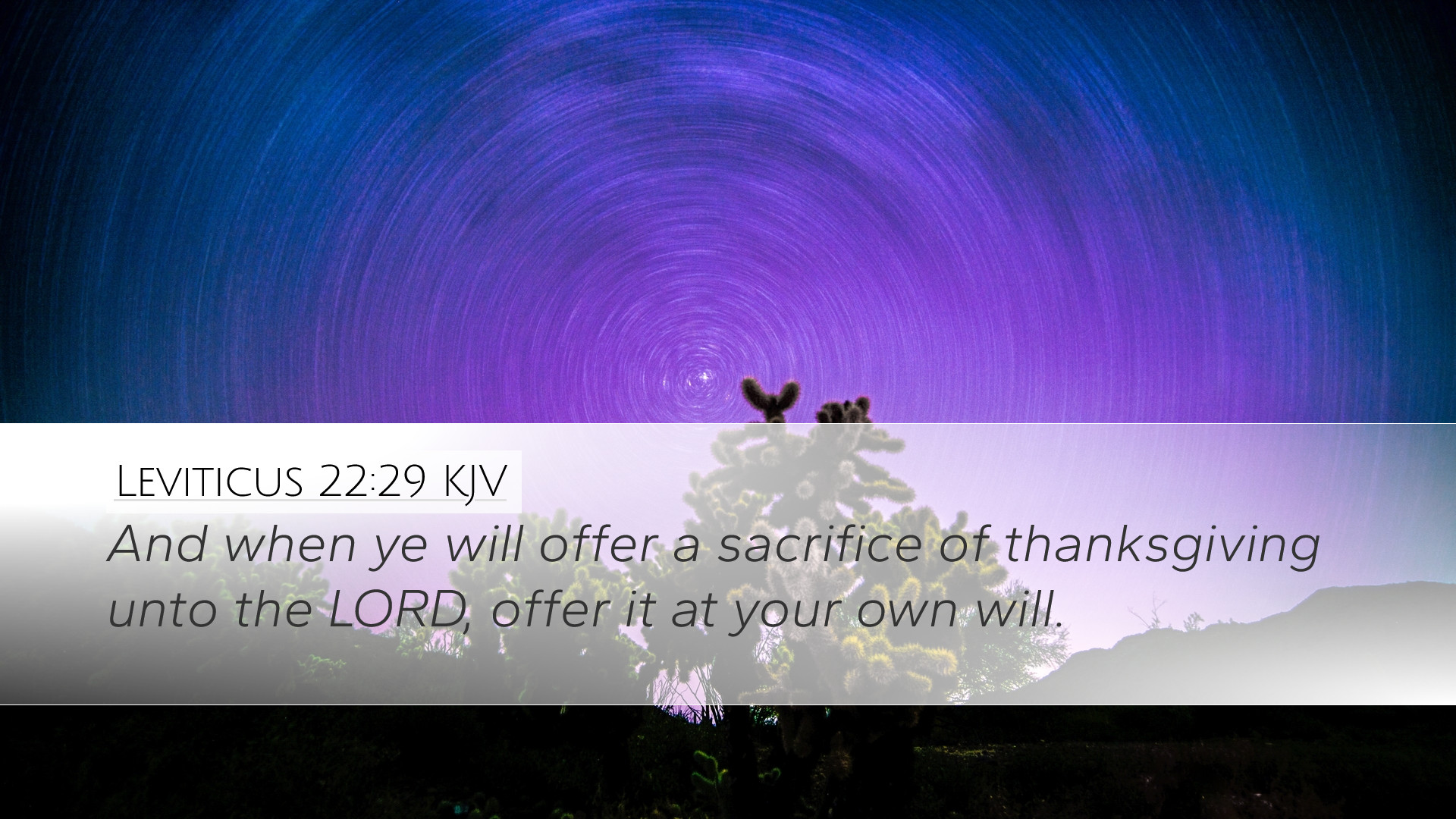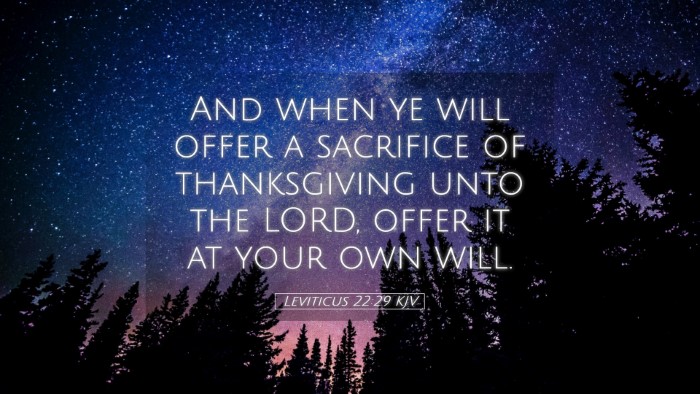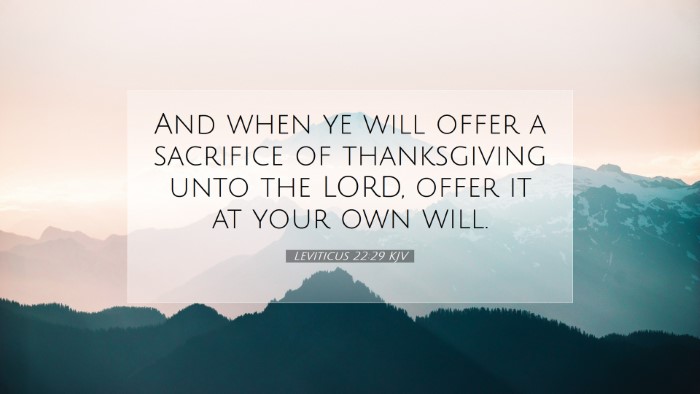Commentary on Leviticus 22:29
Leviticus 22:29 (KJV): "And when ye will offer a sacrifice of thanksgiving unto the LORD, offer it at your own will."
Introduction
The verse from Leviticus 22:29 provides a profound insight into the nature of worship and the attitude with which offerings should be presented to God. This commentary seeks to distill insights from prominent public domain theologians, illuminating the importance of voluntary offerings in the context of biblical worship.
The Nature of Thankful Offerings
Matthew Henry's Perspective: Henry emphasizes that offerings made to God should be expressions of gratitude and joy. He notes that the sacrifices of thanksgiving are not merely rituals but should arise from a heart that recognizes God’s goodness and grace. Thankful offerings are personal and voluntary, where the worshiper dedicates a portion of their blessings back to the Creator, reinforcing their relationship with God.
Albert Barnes Remarks: Barnes highlights that this instruction signifies the importance of the will in worship. Unlike obligatory sacrifices, thank offerings stem from a genuine desire to honor God, and thus they are more valuable in expressing true devotion. This principle fosters an attitude of thankfulness and encourages believers to consider their daily lives and successes as occasions for gratitude towards God.
Adam Clarke's Analysis: Clarke elaborates that these offerings were meant to be given freely, showcasing the voluntary nature of devotion. He argues that this reflects a deep spiritual truth – that God desires not just our sacrifices, but our hearts. Clarke emphasizes the importance of the intention behind the offering, as it aligns with the New Testament understanding where God loves a cheerful giver.
Theological Implications
This verse highlights several theological implications for worshipers today:
- Voluntariness in Worship: The concept of offering out of one's own will invites believers to engage in worship actively rather than passively complying with rituals.
- Thankfulness as a Core Attitude: Thanksgiving should permeate all aspects of a believer's life, positioning gratitude as a central theme in their relationship with God.
- God’s Desire for Our Hearts: As emphasized by Clarke, God is less interested in the ritualistic act of giving and more focused on the heart's condition behind the offering.
Application for Pastors and Leaders
For pastoral leaders, Leviticus 22:29 can serve as a foundational text when teaching congregations about the nature of giving and worship. Here are practical applications:
- Encourage Participation: Cultivate an environment where believers feel free to offer their gifts and acts of service willingly, as a reflection of their relationship with God.
- Train in Gratitude: Offer teachings that focus on gratitude as a way of life, urging believers to recognize and celebrate God's blessings regularly.
- Model Thankfulness: Pastors should exemplify thankfulness in their ministry, demonstrating through their actions the joy found in giving voluntarily to God’s work.
Conclusion
Leviticus 22:29 serves as a vital reminder of the heart of worship — that our offerings should emanate from a place of gratitude and willingness. As we reflect on this passage, may we be inspired to approach our relationships with God and our acts of worship with renewed passion, grounded in thankfulness and authenticity. As both Henry, Barnes, and Clarke suggest, it is not merely what we offer but the spirit in which we offer it that truly matters to God.


